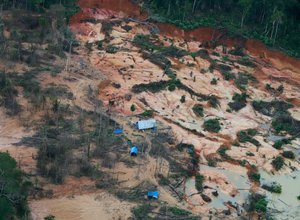Volvo Car's response
4 November 2024
Volvo Cars does not currently source battery raw materials directly. We recognise that battery supply chains are complex and that the raw materials of concern (RMoC) they contain are associated with significant ESG risks. Hence, establishing supply chain traceability is key since it allows us to identify supply chain actors tier by tier, assess their ESG performance and promote good practice. We have been collaborating with Circulor in tracing battery raw materials through blockchain technology since 2019. Starting with cobalt, blockchain has also been implemented for nickel, lithium, graphite and mica (for isolation sheets).
We further have an audit program covering the battery supply chain which aims to ensure compliance with relevant standards and frameworks, including the OECD Due Diligence Guidance for Responsible Supply Chains of Minerals from Conflict-Affected and High-Risk Areas, or for mines, the IRMA Standard for Responsible Mining Critical Requirements or equivalent schemes. Since 2019, we have commissioned independent audits of suppliers in our battery supply chain from the RCS Global Group. Between 201 9 and 2023, we conducted 61 audits of suppliers in our cobalt, lithium, nickel, graphite and mica supply chains. We aim to ensure that suppliers in all tiers of our battery supply chains are compliant with relevant standards for responsible sourcing.
In 2024, building on our work with traceability we became the first carmaker to introduce a battery passport, ahead of the newly-adopted EU Battery Regulation. Accessible via the Volvo Cars app and a QR code on the door frame, Volvo EX90 drivers know the country of origin of cobalt, nickel, graphite, lithium and mica in their vehicle's battery and related insulation.
Volvo Cars currently has nickel from Indonesia in one of our car models that are on the market today. This mine underwent an on-site audit in 2023, and a follow-up audit was conducted in the spring of 2024. For our other car models, we are using nickel from other countries and recycled nickel.
We also run a training program for suppliers in our battery supply chain with the aim of securing compliance with relevant international standards and our sustainability requirements (see above). Personnel from the mine in Indonesia participated in the training during the spring. The traceability-, audit- and training- programs are the fundaments in our due diligence work in our battery supply chain aiming at driving continuous ESG improvement in this supply chain.
Moreover, in 2024 Volvo Cars had a representative that participated in a study travel arranged by Drive Sustainability and IndustriAll to Indonesia to visit nickel mines and treatment units, engage with rights holders and government representatives to further increase our understanding of the challenges and opportunities in this area.
Compliance with our Business Partner Code of Conduct is a prerequisite for supplying Volvo Cars. Any identified violations of it, or information about potential violations, are taken seriously and are investigated and addressed according to our established processes.
For more details on Volvo Cars Responsible business strategy for our supply chain, please read our latest Annual and Sustainability Report or our public Human Rights Statement.
